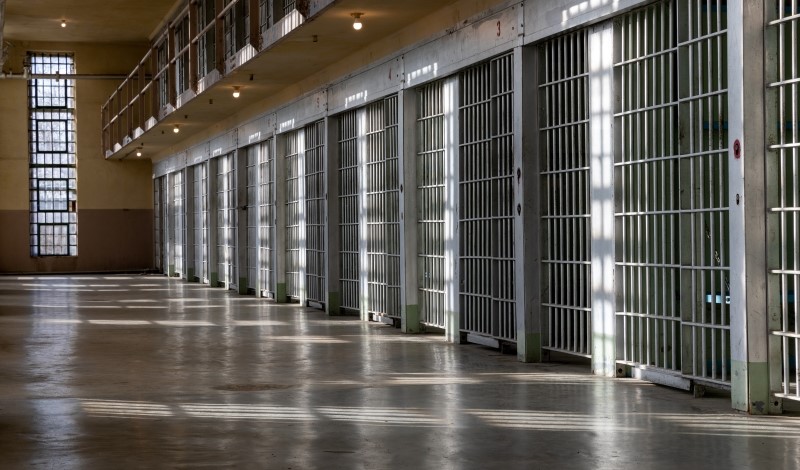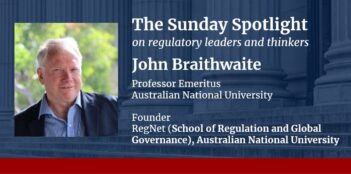
Scholar argues that plea bargaining in the United States needs stronger regulations to save the criminal justice system.
Almost 99 percent of criminal convictions in the United States are the result of guilty pleas defendants make after striking a deal with prosecutors. Despite its importance in the criminal justice system, plea bargaining remains largely unregulated, without standards to ensure that guilty pleas result from fair negotiations.
In a recent paper, Russell D. Covey, a professor at Georgia State University College of Law, argues that lawmakers should impose rules to both protect criminal defendants from prosecutors with unfettered discretion over the defendants’ fates and to save the disappearing criminal trial. Covey urges regulators to set standards to govern the “timing, scope, and magnitude” inherent in the choice and consequences of plea bargains.
Plea bargaining is when a prosecutor makes a deal with a defendant in which the defendant pleads guilty to avoid a trial. The majority of cases in the criminal justice system are resolved through pleas instead of through trials. More cases are funneled through the informal plea bargaining track—a track without uniform standards and regulations—than through the highly regulated trial track.
Covey contends that plea bargaining, when used appropriately by prosecutors, has benefits. For example, plea bargaining can quickly resolve cases whereas trials can be lengthy and burdensome. To maximize the benefits of plea bargaining and minimize its unwanted consequences, however, lawmakers must properly regulate the plea bargaining system, Covey argues.
Covey notes that in its current state, plea bargaining maintains some norms. One common norm is that when a plea deal is reached, the victim is usually notified. Custom, locality, and attorney preference set most of these norms which results in variation in outcomes for criminal defendants who plead guilty across states.
Covey adds that another source of standards for plea bargaining is Rule 11 of the Federal Rules of Criminal Procedure. Covey argues that this rule, however, does nothing more than dictate the minimum amount of information that must be shared with criminal defendants before they plead guilty. It also states that the grounds for the plea must be based in fact.
Since plea bargaining occurs outside of a trial setting with few uniform standards, power and discretion shift from judges to prosecutors in plea bargaining, Covey explains. Prosecutors control nearly all aspects of plea bargaining, including which defendants receive an offer and the logistics, contents, and timing of an offer.
Covey notes that prosecutors prefer plea bargaining because they have many tools that make it easier to convince criminal defendants to plead guilty. One example is the trial penalty. If criminal defendants go to trial and are found guilty, defendants are likely to have a longer sentence than they would if they plead guilty through a plea bargain. The possibility of a longer sentence makes some criminal defendants feel as if they have no choice.
Covey argues, however, that the foundation of the criminal justice system should be the jury trial.
Without trials, defendants lose the opportunity to hold public officials accountable and ensure transparency in the criminal justice system, Covey explains. The dearth of trials also results in the loss of judge-made criminal law. Covey further notes that with fewer trials, attorneys lose trial lawyering skills, which ultimately affects future clients who may pursue a trial over a guilty plea.
Covey argues that trials are critical to a functioning plea bargaining system. He explains that, without the true threat of or opportunity for a trial, plea bargaining becomes an end in and of itself. Covey suggests that by regulating plea bargaining, lawmakers can mitigate the unfavorable consequences of the lack of criminal trials.
To regulate plea bargaining, Covey urges lawmakers to look to the strict rules and procedures governing criminal trials and create standards for plea bargaining that function similarly.
First, Covey suggests that plea bargaining should occur in the courtroom to increase transparency in the process. Plea bargaining usually happens informally, through conversations between lawyers in courthouse hallways, phone calls, and even through text messages.
Covey also proposes that regulators enact procedural mandates, such as a requirement that prosecutors write out all offers and file them with the court.
Beyond that, Covey urges regulators to limit the unilateral discretion of prosecutors. Covey suggests that criminal defendants should not be forced to make plea bargaining decisions under the pressure of prosecutor-imposed timelines or without counsel.
In addition, Covey urges that lawmakers better maintain transparency with defendants, who should understand potential sentences and what will happen if they decline or accept a plea offer Covey suggests that this transparency could limit how coercive an offer may seem to a defendant.
For instance, Covey recommends that regulators set a reasonable, fixed standard for the differential between sentences offered during plea bargaining and sentences offered at trial. Covey posits that the sentence prosecutors offer to defendants for pleading guilty should only be between 30 percent to 50 percent smaller than any sentence that may be given at trial. He contends that narrowing the gap between trial and plea bargain sentences and limiting prosecutor coercion would result in bringing more cases to trial.
Regulators must move plea bargaining to the courtroom and set procedural safeguards similar to those available to criminal defendants going through a trial, Covey emphasizes. He concludes that for Americans to experience an effective and fair criminal justice system, a regulatory framework for plea bargaining must center transparency, accountability, and standardization.



